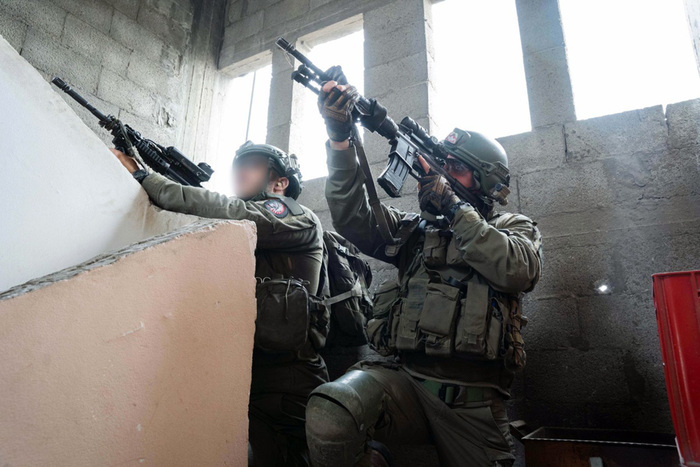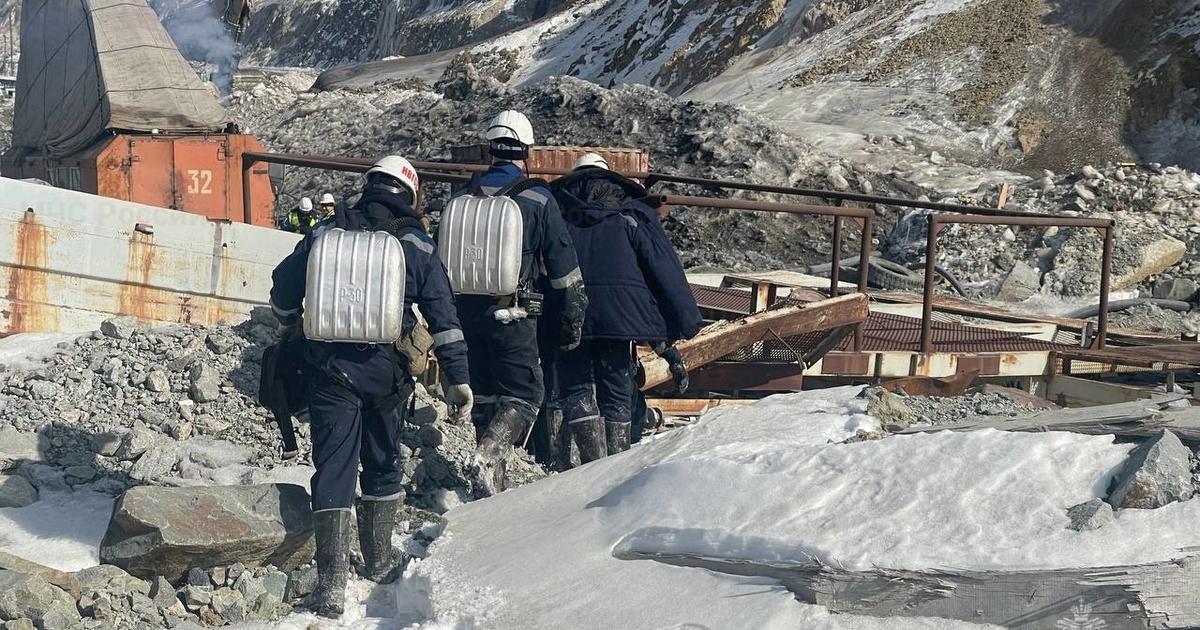If Viktoria Borodayeva had stayed six hours longer in her house on Buscowa Street in Moschun, she would probably have been dead. Where the roof used to be, only two charred wooden beams soar diagonally into the sky, martial like the barrels of artillery pieces.
All that remains of the upper floor, where the bedroom and the two daughters' rooms were, are the floors and parts of the white outer wall.
None of the window panes survived the pressure waves, and even weeks after the rocket hit, the smell of burned plastic still lingers.
Borodayeva, in her late 40s, with a bob hairstyle, was one of the last to leave the 800-house village of Moschun on February 28.
It didn't work before because of the dogs.
Four Neapolitan Mastiffs, each weighing 130 pounds.
Impossible to get them all in their little car.
Luckily, a friend with a larger car finally picked her up.
Six hours later, the upper half of the house in which she had lived for eleven years exploded in the night.
"The biggest shock wasn't losing all the stuff, it was how close it was that we almost died."
Today Borodayeva has a visit from the State Service for Emergency Situations, which is responsible for the clean-up work.
Four demining experts in blue protective vests came to Moschun to search houses for duds, mines, rocket parts, artillery shells and booby traps.
Moschun is 35 kilometers by road northwest of Kyiv, many capital city residents have summer houses here.
In peacetime, walkers and bathers flock to the surrounding forests and lakes, now the site is in emergency mode.
In the cultural center on Lenin Street, next to the memorial to the fallen of World War II, volunteers are distributing packed lunches and medicines.
In the next building you can get jackets, trousers and t-shirts.
80 percent of the houses in Moschun have been destroyed
Someone wrote the word "heroes" in black pen on the damaged heart sculpture with the place name.
On some of the walls the word "Liudy" can be read, which means "people" and means civilians.
A plea for clemency to the attackers, which did little: According to the regional administration, 80 percent of the houses in Moschun were destroyed or damaged, the proportion is higher than in the neighboring towns of Bucha, Irpin and Hostomel.
Since Viktoria Borodayeva has returned, she has not dared to go into her garden for fear of explosive war waste.
Civil protection warns of duds every day in TV clips and talk shows, on the radio and online.
Several Ukrainians have already died from mines.
Barrier tape will be hanging at the entrances to the forests around Moschun for a long time.
Because it is cleared according to priority, first the streets, then the public places and the buildings.
It is said here that every day of the war means a month later mine clearance, plus huge amounts of rubble and waste.
And unfortunately, the Kyiv Oblast is just the beginning: The current fighting in the east of the country is causing damage that is many times more dramatic.
A recently released drone video showing the total destruction of the 56,000-population city of Rubishne,
Ukraine faces a historic mammoth task.
It's a question of self-confidence, of national prestige.
Because reconstruction is a matter for either the conqueror – or the successful defender, not the loser.
It is also about securing evidence of war crimes as early as possible.
Every day of war means a month of demining
"Until the crisis in Donbass in 2014, we only dealt with bombs from the Second World War," says Denys Trachuk, head of the unit that drives through Moscow in a Toyota Land Cruiser today.
A blue and yellow Stars and Stripes is printed on its door, the car is sponsored by the EU.
»But now there is so much to do, the destruction in Kyiv Oblast is fierce.
A few weeks ago in Bucha I had to search the corpses on the street for explosive devices, that was really hard.«
He walks slowly through the back garden with a metal detector while Viktoria Borodayeva packs up pots and plates.
Friends are standing in front of the door with a van and invite washing machine and refrigerator.
She brings two 500 gram packs of salt from the kitchen.
“I'll leave everything in a warehouse in Kyiv until the house is rebuilt.
Take a look at how the plants are blooming along the way, it hasn't been this beautiful for years.
Maybe that's a sign.
Life goes on."
Finally Trachuk gives the all-clear, there are only a few harmless grenade parts in the garden.
He gets in the car and drives a few houses down to the next search job.
The exhibition »Present Ukraine – caused by Russian aggression« shows what the clean-up squads find when the fighting is over.
It is located in Kyiv on the first floor of the headquarters of the State Emergency Situations Service, a palatial tsarist-era building on Olesya Gonchara Street.
Columns and marble, 19th century pomp.
The exhibition will soon have to move to a larger room because exhibits are constantly being added.
Debris from artillery shells and rockets - these weapons are called Tochka-U, Smerch and Uragan - bent parts of Russian vehicles, anti-tank mines and parts of a downed Mi-28 Night Hunter helicopter can be seen.
»Oj, u lusi tscherwona kalyna«, sung by Andriy Klyvnyuk, comes out of the loudspeaker.
The patriotic folk song became the unofficial war anthem.
You can also see a piece of cardboard that Ukrainian emergency services found on the wall of a school near Kyiv: »Not us, but you are the orcs.
We fight for peace.
There are no Russians in Donbass, that's what our President says.
Your language sucks.” The sentence about the Donbass is a mystery, after all, heavy fighting has been raging in the eastern region for weeks.
more on the subject
Russian troops in the Donbass: They aim at a single enemy - and destroy entire streets by Oliver Imhof
Rescue of bomb victims in Kharkiv: "It's so sad to lose someone you know, someone you love"
Moscow drops propaganda leaflets in DIN A6 format from the air: The days of the government are numbered.
The people are forced to fight for the interests of others, for murderers and fraudulent politicians.
leaflets mixed up
However: the text is addressed to the citizens of the Chechen Republic, the attackers probably still had the leaves from the destructive war there.
At the end there is the sentence: »A life in peace is better than war.«
Finds from destroyed apartments are stacked in the middle of the exhibition room.
For example, a globe containing an unexploded Russian shell.
It hit Russia of all places, just east of Moscow.
Also a destroyed children's cello, dolls and baby clothes.
'The worst are the booby traps in children's rooms.
In footballs or toys,” says Roman Prymush, deputy chairman of the National Service for Emergency Situations.
“These are obvious violations of the rules of war, targeting civilians.
Manipulated washing machines, shower doors or kitchen drawers.
As soon as you pull the door, the detonation is triggered.«
Prymush, a serious-looking bald man in a fleece sweater, sits at the huge wooden table in the conference room.
Black leather chairs, chandeliers, big screens on the walls.
He reports his authority's statistics from the first three months of the war: more than 123,000 neutralized explosive devices, 2,300 aerial bombs defused, 24,000 hectares of land cleared of mines.
So far, 37 rescue workers have died, seven have been captured by the enemy and 110 injured.
“Unfortunately, sometimes our people get into combat, sometimes they are even attacked directly.
And some died from dud explosions.”
In addition, the rescue workers lose valuable material every day, hundreds of vehicles and pieces of equipment have already broken down.
Prymush hopes for more donations from abroad.
»Fire engines and protective equipment have already been delivered from Germany.
But bulldozers, concrete cutters and excavators are missing.
And bulletproof vests and helmets.”
In theory, much of the waste of war can be recycled: metals, wood and building materials can be reused, bombs can be dismantled into their individual parts instead of simply being detonated in a safe place.
Such plans are on the table in Ukraine, and the UN's development program wants to help implement them.
But there hasn't been time for that yet.
A new mine clearance app
A new app called Rozminovanya Ukraine (»Mine Clearance Ukraine«) shows on a map which regions are currently dangerous.
In addition, citizens can report their own finds, which are then checked.
When the emergency services identify something as potentially dangerous, the demolitions experts swarm out.
For example to Horenka, the neighboring town of Moschun.
The way there leads past a checkpoint where a dummy of a hanged Russian soldier dangles in the wind from a tree.
Next to it is the remains of a Russian armored personnel carrier.
In Horenka, minesweepers are currently taking care of the "azure lake".
The associated beach has 540 Google reviews, with an average rating of 4.5 stars.
Visitors particularly praise the unusually clean water, but some criticize how crowded the bathing area is on weekends and public holidays, when you hardly get a parking space.
Today there are two inflatable boats from the demining unit on the water and the only bather is a professional diver.
With the help of a Chinese underwater drone, he is looking for duds, while a colleague on land is monitoring the situation on a Samsung tablet.
In slow motion, the men pull a Russian grenade on board on a rope like a big gray fish.
They drive to a jetty where their colleagues carry the hazardous waste to the loading area of a truck.
Always horizontally on the flat hands in front of the upper body, as if they were bringing an offering to the god of war.
They walk with supple steps so as not to cause any shock.
"It's getting warmer, people want to swim again," says Yurii Tsykiniuk from the rescue team, explaining the clean-up operation.
"We've already found ten duds." While other bathing lakes in the region remain closed, everything will soon be safe here.
Perhaps the "azure lake" will be even more overcrowded than usual in the summer of war.









